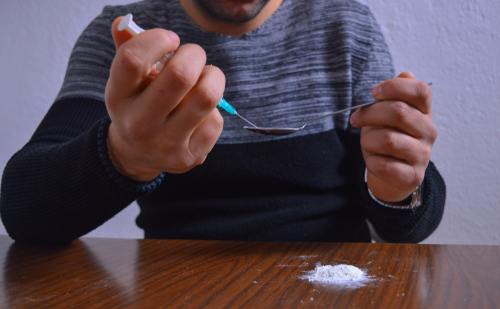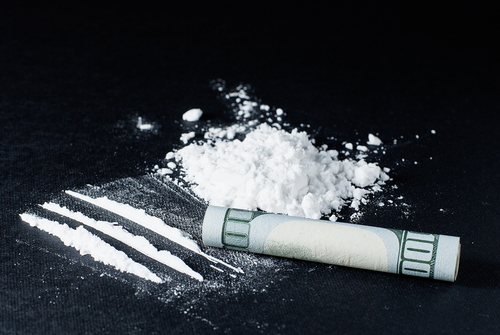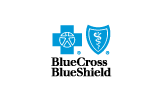

Addiction to opioids such as prescription painkillers like OxyContin, synthetic opioids like fentanyl, and heroin has become a public health crisis, costing the country as much as $78.5 billion a year in healthcare, criminal justice, and loss of productivity costs. At first, pharmaceutical companies claimed that prescription opioids were not addictive which led to the over-prescription of opioids and their chronic misuse, causing overdose rates to skyrocket. People often come to opioid painkillers legitimately, for pain mitigation after an accident or surgery and end up addicted and turning to street opioids such as heroin and fentanyl. About 80 percent of heroin users first misused prescription opioids.
Many people who find themselves addicted to opiates had initially been taking them as prescribed for a legitimate ailment. Some started off with occasional recreational use. However, tolerance and dependence develop very quickly and users find themselves struggling to obtain enough to “feel normal”. This can lead to fraudulently obtaining more prescriptions, turning to street dealers, or substituting heroin because it is easier to get. Sadly, many Opioid addiction stories end in overdose, especially with presence of the Fentanyl, a very powerful opioid found in many street opiates.
Here are some warning signs that Opioid Abuse has become a problem:
If you are experiencing Opioid addiction, you know how painful and frightening the withdrawal process can be. Extreme agitation, sweating, muscle spasms and aches, severe nausea and abdominal pain combined with strong cravings are difficult to overcome on your own, and often lead to relapse.
Treatment for Opioid addiction often starts with Supervised Detoxification. Detoxing from opioids can bring about severe symptoms like intense nausea, muscle pain, fever, anxiety and paranoia. It is very dangerous to do on your own, not to mention painful. At Pathways Recovery Center, we’ll make sure you’re medically stable under the monitoring of our on-site clinical and nursing staff who are experienced in implementing medication-assisted detox. This will ensure the safest and least painful withdrawal experience.
In our private, intimate facility designed for serenity and comfort, you’ll begin intensive therapy to not only address addiction, but the underlying factors that led to it. At Pathways Recovery Center, we believe that healing addiction means healing the whole person. You’ll undergo assessments to determine each of the contributing biological, social, and psychological factors that have kept you in the cycle of addiction. Using evidence-based therapies like CBT and DBT, we’ll help you learn new coping skills and positive thinking patterns that will help you overcome your cravings, master your emotions, and heal. Pathways Recovery Center will get you the social support you need to stay free from Opioid addiction with tools like 12 Step programs and group therapy. You are not alone!
Contact our addiction specialists today to learn more about substance abuse treatment at 1-866-682-0901 or admissions@pathwaysrecovery.center
Additional Resources on Opioid Addiction:
American Society of Anesthesiologists – Opioid Abuse
U.S. Department of Health and Human Services – National Opioids Crisis
Alcohol abuse and dependence affect over a quarter of Americans every year. Alcohol is the most widely available drug of abuse in our country. Treatment for alcohol requires medically assisted detoxification and an intensive program designed by Pathways to help each client learn to live a joyful life, free of alcohol.
Read MoreThe United Nations recently put the number of people worldwide abusing Methamphetamine at approximately 24.7 million. The effects of meth abuse are quickly visible and often lead to incarceration, physical deterioration, and complete demoralization. Pathways provides a serene and quiet environment for the meth detoxification process, as well as intensive therapy to prepare clients to leave Meth behind for good.
Read MoreCocaine is the most trafficked drug in the world and it is estimated that at least 5 million Americans use it. It is highly addictive and often ends in psychosis and financial ruin. Long term cocaine use can lead to heart disease, stroke, seizure disorders, chronic headaches, and many cognitive deficits. As the use of cocaine increases, you may feel stronger cravings as your brain changes to adapt. Once your mind and body begin to depend on the drug, you may have trouble functioning without it. Pathways can help you beat cocaine through intensive treatment that has been proven effective.
Read MoreSince 1999, heroin related overdose rates have multiplied more than seven times. Many heroin users were once legitimately prescribed opiate painkillers like OxyContin and found heroin a cheaper and easier to acquire substitute. Heroin use has become increasing dangerous due to the presence of Fentanyl, a substance that leads to fatal overdose with shockingly small quantities of the drug. Treatment for heroin addiction requires medically supervised detoxification.
Read MoreUse of opiate painkillers such as Oxycontin and Percocet, as well as benzodiazepines like Xanex and Valium can quickly escalate from use to abuse due to the tolerance and dependency that develops from regular use. Stimulants like Adderal are very powerful and can quickly become addictive even when used for legitimate disorders like ADHD and narcolepsy. Pathways can help you learn to cope with your issues without these substances. Detox from these drugs can be dangerous and requires medical supervision.
Read MorePathways Recovery Center Believes That Anyone Suffering From Addiction Can Recover And Experience The Joy Of Life Again. Join Us In Fighting Addiction One Person At A Time.





Call us today or fill out the form and one of our Admissions Specialists will contact you ASAP.
1033 N Soldano Ave. Azusa, CA 91702
1-866-682-0901
admissions@pathwaysrecovery.center




